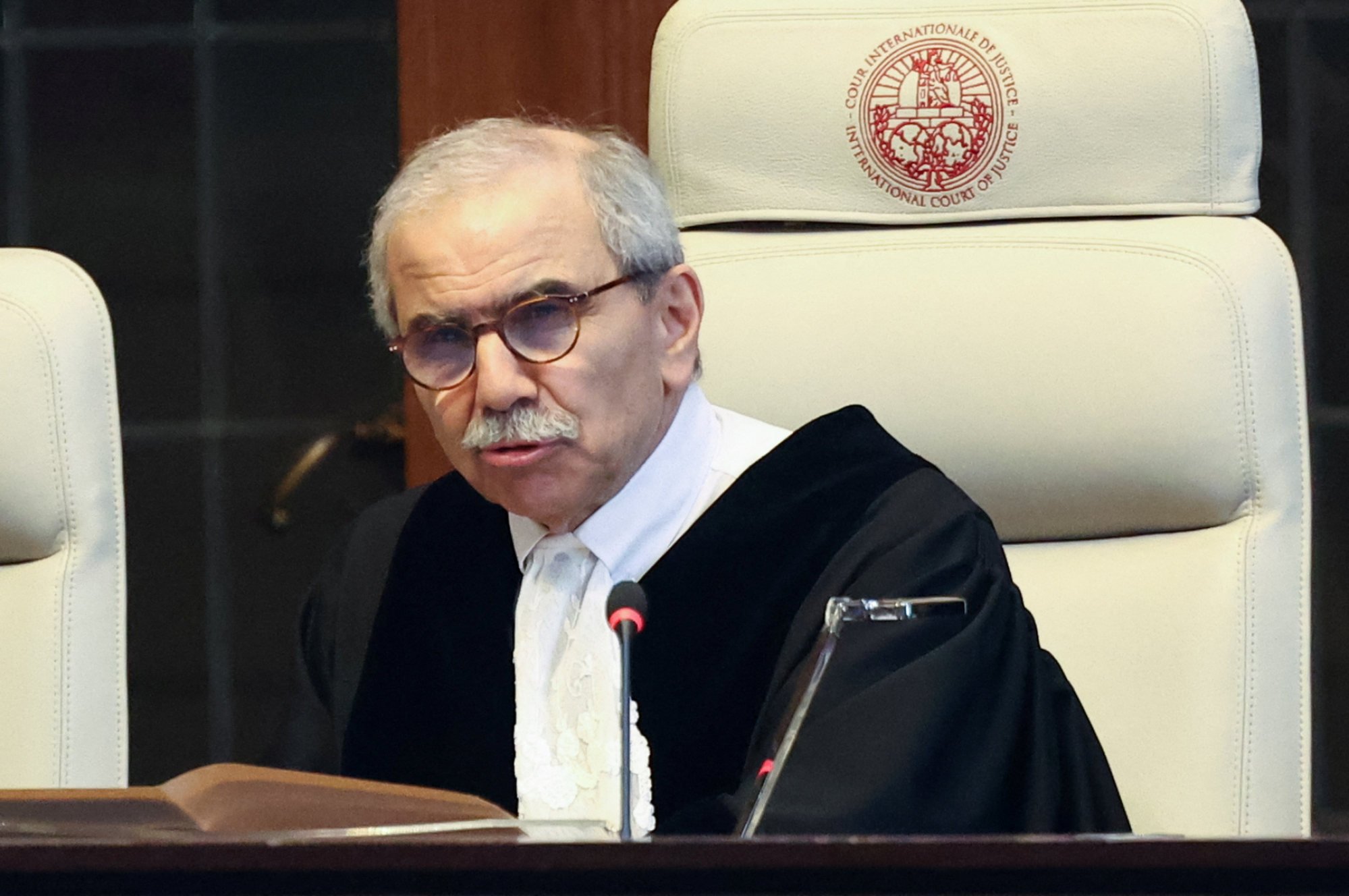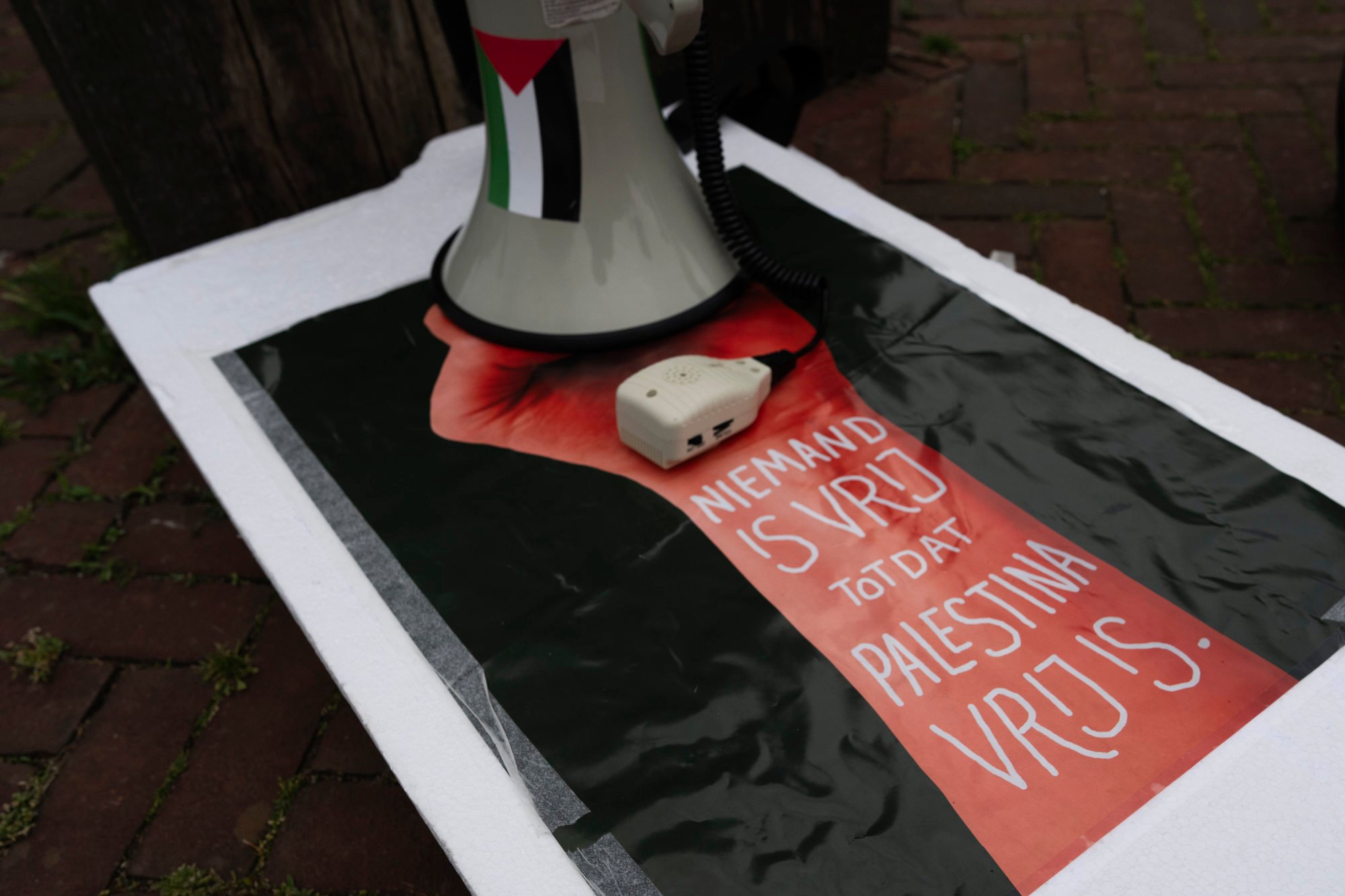
Gaza war: UN top court orders Israel to halt military operation in Rafah, Netanyahu to meet senior ministers
- The court backed a South African request to order Israel to halt its offensive in Rafah, a week after Pretoria called for the measure in a case accusing Israel of genocide
- Israel has repeatedly dismissed the case’s accusations of genocide as baseless, arguing in court that its operations in Gaza are self-defence
Judges at the top United Nations court ordered Israel on Friday to halt its military assault on the southern Gaza city of Rafah, but stopped short of ordering a ceasefire for the enclave.
Reading out a ruling by the International Court of Justice (ICJ) or World Court, the body’s president Nawaf Salam said provisional measures ordered by the court in March did not fully address the situation in the besieged Palestinian enclave now, and conditions had been met for a new emergency order.
“Israel must immediately halt its military offensive” in Rafah, he said.
Israel had not explained how it would keep the population safe during an evacuation of Rafah, or provide food, water, sanitation and medicine for the 800,000 Palestinians that had already fled the Israeli advance, he said.
The court also called for the immediate release of hostages taken by Hamas in its October 7 assault on Israel.
“The court finds it deeply troubling that many of these hostages remain in captivity and reiterates its call for their immediate and unconditional release,” the International Court of Justice said.

In its ruling, the court backed a South African request to order Israel to halt its offensive in Rafah, a week after Pretoria called for the measure in a case accusing Israel of genocide.
Outside, a small group of pro-Palestinian demonstrators waved flags and played a rap on a boom box calling for a free Palestine.
The Palestinian Authority welcomed the decision, saying it represents “an international consensus” to end Israel’s war on Gaza, a Palestinian spokesman told the Reuters news agency.
Hamas hailed the UN top court’s ruling, but criticised its decision to exclude the rest of war-torn Gaza from the order.
The Palestinian militant group “welcomes the decision of the International Court of Justice”, it said in a statement, adding that it expected the ICJ ruling to “put an end to the aggression and genocide against our people throughout the Gaza Strip, and not just in Rafah”.
Immediately after the ruling, Netanyahu announced that he would hold a special ministerial meeting to decide how to respond. Yair Lapid, the leader of the opposition, derided the decision.
“The fact that the ICJ did not even directly connect the end of the military operation in Rafah to the release of the hostages and to Israel’s right to defend itself against terror is an abject moral failure,” he said.
Israel’s far-right Finance Minister Bezalel Smotrich responded to the ruling on X, saying “history will judge those who stand today alongside the Nazis of Hamas Daesh,” referring to the jihadist Islamic State group.
Israel has repeatedly dismissed the case’s accusations of genocide as baseless, arguing in court that its operations in Gaza are self-defence and targeted at Hamas militants who attacked Israel on October 7.
An Israeli government spokesman said on the eve of Friday’s decision that “no power on Earth will stop Israel from protecting its citizens and going after Hamas in Gaza”.

Israel launched its assault on the southern city of Rafah this month, forcing hundreds of thousands of Palestinians to flee a city that had become a refuge to around half of the population’s 2.3 million people.
Rafah, on Gaza’s southern edge, has also been the main route in for aid, and international organisations say the Israeli operation has cut off the enclave and raised the risk of famine.
The top UN court on Friday also ordered Israel to keep open the Rafah crossing to ensure the “unhindered” access of humanitarian aid.
Israel must “maintain open the Rafah crossing for unhindered provision at scale of urgently needed basic services and humanitarian assistance”, the court said in its ruling.
South Africa’s lawyers asked the ICJ last week to impose emergency measures, saying Israel’s attacks on Rafah must be stopped to ensure the survival of the Palestinian people.
The court is the highest UN body for hearing disputes between states. Its rulings are final and binding but have been ignored in the past. The court has no enforcement powers.
A decision against Israel could heap more diplomatic pressure on the government of Prime Minister Benjamin Netanyahu.
The chief prosecutor of the International Criminal Court – a separate court also based in The Hague – announced on Monday he had filed an application for arrest warrants against Netanyahu and Defence Minister Yoav Gallant, as well as leaders of Hamas.
Prosecutor Karim Khan accused Netanyahu and Gallant of crimes including extermination, using hunger as a weapon and deliberately attacking civilians. Israel strongly denied those charges and called on allies to repudiate the court.
South Africa’s wider case at the ICJ accuses Israel of orchestrating a state-led genocide against the Palestinian people. The ICJ has not ruled on the substance of that accusation – it could take years – but has rejected Israel’s demand to throw the case out.
In previous rulings, the court ordered Israel to prevent acts of genocide against the Palestinians and allow aid to flow into Gaza, while stopping short of ordering a halt to Israeli military operations.
Israel launched its air and ground war on Gaza after Hamas-led militants stormed into southern Israeli communities, killing 1,200 people and seizing more than 250 hostages, according to Israeli tallies. More than 35,000 Palestinians have since been killed in the offensive, Gaza’s health ministry says.
Additional reporting by Agence France-Presse, Associated Press

